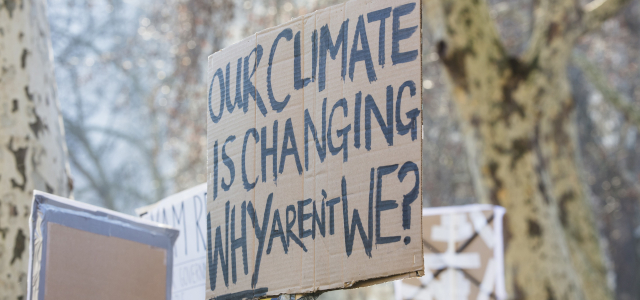GWP’s Chair, Howard Bamsey, a former diplomat whose portfolio for many years was climate issues, will represent GWP’s global network of 3,000-plus partners in 183 countries. “Our mission since inception has been to use the power of stakeholder mobilisation to drive action towards water security,” said Bamsey. “Water is the medium through which the impacts of climate destruction is expressed. Water-related disasters account for 90% of major natural disasters since 1990. The link between climate and water is inextricable.”
Bamsey will speak at an event at UN Headquarters on September 25 titled, “Transformative Water Actions to Accelerate Global Achievement of Climate Change related Goals”, where he will highlight a ‘sneak preview’ of “Ten Stories of Impact” about how GWP has contributed to climate resilience around the globe. “These stories demonstrate that action on water makes a direct contribution to action on climate, making communities more resilient to climate change threats,” said Bamsey.
GWP has mobilised €25 million for water and climate resilience projects, influenced more than 15 investment plans supporting infrastructure projects worth more than €1 billion, incorporated climate into 20 formally approved development plans and strategies, and implemented more than 30 demonstration projects.
GWP’s new strategy, Mobilising for a Water Secure World, launched in New York in July during the High Level Political Forum, is clear about the strongest lever available to address climate change impacts as well as the many other pressures on water resources: mobilising communities so that the voices of all stakeholders are heard.
GWP’s Executive Secretary, Monika Weber-Fahr, said, “Concern for our planet is why GWP was founded in the first place. We need government action at all levels to find the right solutions.” Weber-Fahr, on behalf of the GWP network, joined with many others to sign an open letter to the UN Summits and the United Nations General Assembly. The letter notes that, “On water, SDG 6, there has been alarmingly inadequate progress,” citing that 785 million people do not have access to a basic drinking water service and two billion people live in countries experiencing high water stress.
“There are tough choices ahead,” said Weber-Fahr, “and we need everyone at the table to take them together. We’re committed to working across sectors as the way to leverage global policy frameworks to motivate all stakeholders to improve processes that lead to systems change.”
Weber-Fahr said that economic growth, population growth, and climate disaster are creating water crises – in many places there is “too much”, “too little” or “too dirty” water. “Poverty, pollution, conflicts, floods, droughts, migration – all this is water related – and often life threatening,” she said.
Weber-Fahr announced that employees at GWP’s global secretariat in Stockholm will be encouraged to take part in the global climate strike that takes place on September 27. “If we want a future that works for all people, we can’t do business as usual,” said Weber-Fahr. “GWP is home to passionate people who dedicate themselves to improving the way we manage our water resources. We value peaceful civil action as a tool for systems transformation and invite our global network to join us."
In the recently launched Global Commission on Adaptation report, “Adapt Now: A Global Call for Leadership on Climate Resilience,” GCA leaders call for urgent action to innovate and advance climate adaptation solutions. GWP provided comments to the report and committed to the Commission’s Global Action Tracks. GWP has pledged: 1) to introduce water-specific insights into national dialogues, planning, and investments associated with climate resilience-related development priorities; and 2) work across sectors and administrative borders to identify solutions that can promote sustainable transboundary water resources management.
GWP has signed up to a range of initiatives through which the links between climate and water will be strenghened:
- Coalition for Climate Resilient Investment led by the private sector this coalition aims to make investment, particularly investment into infrastructure, more resilient to the impacts of climate change.
-
Just Rural Transition initiative: The initiative sets out a vision to transform the way in which we produce and consume food and use our land and natural resources, which contribute towards the 2030 Development Agenda and Paris Climate Agreements.
- African Adaptation Initiative (AAI) aims to enhance adaptation action in Africa through access to climate services; strengthening policies; action on the ground; and increasing access to climate finance and investment.
- Risk-informed Early Action Partnership REAP aims to make 1 billion people safer from disaster by improving early warning systems and the capacity to act on risks.
- Management in Government Decision Making aims to support countries to integrate climate risks into planning, budgets, and decision-making.
- LIFE-AR (Initiative for Effective Adaptation and Resilience), led by the Least Developed Countries (LDC), group aims to drive a shift towards a more effective and ambitious global climate response.
- InsuResilience Global Partnership Vision 2025 aims to strengthen the resilience of the poor and vulnerable through a scale-up of risk finance and risk transfer solutions.
Photo: Adobe Stock

